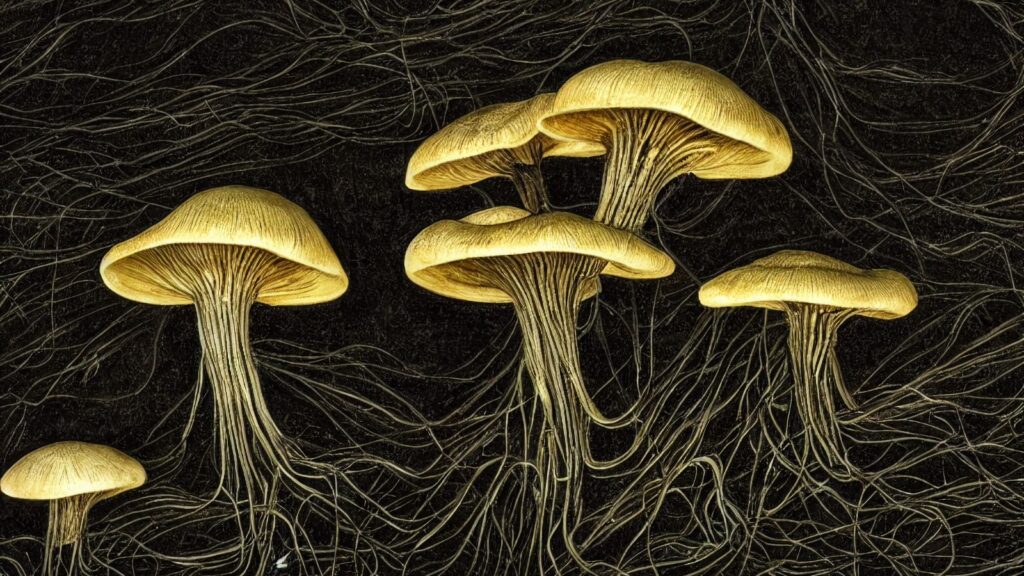Once more unto the breach, dear friends, once more;
King Henry V
William Shakespeare
As dreary as the task was, I delved into Rupert Sheldrake’s bio on Wikipedia and started examining the sources for just one statement from this totally over the top biased paragraph with six accusations and 18 citations:
Sheldrake’s morphic resonance hypothesis is widely rejected within the scientific community;[8][9][10][11][12] it has been labelled pseudoscience[11][13][14][15][16] and magical thinking.[13][17] Critics cite a lack of evidence to support the hypothesis[18][19][20][21] and its inconsistency with established scientific theories.[11][22]
I worked on citations 8 through 12. It’s possibly true morphic resonance is “widely rejected”, but far more likely that morphic resonance is widely ignored. On Wikipedia however, you need valid secondary sources for your statements. So I checked them out. Of the five sources: two were book reviews, one link didn’t work and the other two contained just one sentence dealing with the above statement. Of those two, one was by Martin Gardner from a book published in 1988. He was also a member of CSICOP, so his opinion was hardly representative of the mainstream, but it was also, just one sentence. The last was an article favorable to Sheldrake and again, it was just one sentence.
The sourcing for this statement, in other words, was terrible. Dutifully, I wrote this up on the Wikipedia Rupert Sheldrake Bio talk page. (Under my own name.) One more small bit done in order to move his biography from a horribly biased, possibly libelous wreck to a more neutral point of view.
Boring, right? Why am I doing this? Well, partially this is more fallout from the TED controversy, which put Rupert in the news . . . again. On June 20th of this year, after the controversy had died down, Rupert sent out one of his newsletters. In it was a small blurb:
"Robert McLuhan has recently drawn attention to the phenomenon of guerrilla skeptics, who devote a great deal of time and energy to modifying Wikipedia entries so that they reflect a skeptical point of view about psychic phenomena, and try to portray research on these subjects as pseudoscience. His blog on the subject is here:
?Guerrilla Skeptics"
The Guerrilla Skeptics apparently did not take kindly to being outed. Since June, they have gone on the attack to seriously change Rupert’s Bio. On June 14th, he had a relatively stable and neutral biography, which is documented from June 14th. Compare this to the pretty current September 28th version. The changes are quite drastic and unfavorable to Sheldrake.
—–
Wikipedia matters because of the sheer numbers of visitors it draws. The term Parapsychology has about 300,000 views a year and Rupert Sheldrake’s biography Wikipedia page has about 180,000 views a year. His Wikipedia profile in fact, is second only to his own site if you google his name. Sheldrake’s Wikipedia problem is a bit unusual because he appears to be the subject of a coordinated attack by an ideologue organization. (Here’s a long video of them describing their process.) Most of the people who have problems with Wikipedia are trying to get some bit of information corrected on a subject of their expertise. Hilarity often ensues.
A Nobel Prize winning physicist and a senior editor of a science magazine tried to get an article about Energy Catalyst fixed, and failed. Professor Timothy Messer-Kruse tried to get an article about the Haymarket riots, his area of expertise, corrected, using the Library of Congress as a source and failed as well. Economist David Henderson was not trusted to know his own birthday.
These types of problems occur because anybody can edit Wikipedia. In order for all of these people to edit this encyclopedia, Wikipedia has a rule that only secondary sources are allowed because primary sources need to be interpreted. It’s more complicated than that, but what happens is that this opens the door for all sorts of gaming of Wikipedia by less than objective editors. Especially in regards to controversial topics and people, there are often a number of conflicting opinions to choose from and it requires a bit of subject knowledge to sort them out. If you’re an ideologue however, you merely choose the opinions that you agree with and ignore everything else while dismissing contrary sources as being biased. That’s what’s happening on Rupert Sheldrake’s Wikipedia page.
This is not an isolated problem. The great weakness of Wikipedia is its excessive number of ideologues and their desire for control. In 2003, Anthropogenic Global Warming Theory was subjected to near total control by a single editor who created or rewrote 5,428 unique Wikipedia articles, obtained Website Administrator status and removed 500 articles and banned over 2,000 Wikipedia editors. This continued until September of 2009 when his privileges were finally revoked. In one case a user named Qworty attempted to purge Wikipedia of all references to the occult and modern paganism by making as many as 13,000 edits.
The outing of Qworty, who turned out to be author Robert Clark Young, was done by Wikipedia watchdog organization, Wikipediocracy. Writer Andrew Leonard, who pursued this story for Salon shared this compelling story:
“The reason I am doing this,” said Andreas Kolbe, one of the Wikipedocracy members who shared his research with me, “is that I want the public to know just what goes on under the surface of Wikipedia and how the site plays dice with people’s reputations by allowing anonymous editing of biographies of living persons. As someone who joined the project with a fair amount of enthusiasm for its mission more than seven years ago, I have found the realities of how Wikipedia is written irresponsible and deeply disturbing, and given the site’s status as a top-10 website, I believe the public needs to understand just what is going on in Wikipedia day after day.”
Pretty much all the “fringe” topics are subject to control by a large number of ideologues working together. They call themselves skeptics, but they are really just true believers of a different sort. They have a long history of ideologue behavior, -particularly towards the paranormal- that goes back to the 1900?s. They were organized long before Wikipedia was created and quickly moved onto the Internet when it became widely used. The Guerrilla Skeptics organization is merely an extension of what skeptics were already doing: working to control information in a way that is favorable to their ideology.
These ideologues are reactionaries. They typically don’t promote their own viewpoint so much as attack viewpoints that they disagree with.
—
I am not the only person editing (the talk section of) that Wikipedia page for a neutral point of view. It is a very busy Wikipedia page at the moment, at least behind the scenes. Wikipedia editors are supposed to work together to iron out their differences, but in reality, the discussions have a very clear cut us vs. them delineation with no real compromising going on. The issue of how the page should look will surely come down to a fight.
At issue is the all important Wikipedia Neutral Point of View, or NPOV if you’re into the vast array of Wikipedia acronyms. Another important aspect of this conflict is that it is over the biography of a living person. (BLP) This affords Sheldrake some rights that an ordinary Wikipedia article doesn’t have. Wikipedia has faced several lawsuits because of slanderous articles over the years and this has in turn made the neutral point of view for biographies of living people a high priority. But getting there is still an uphill battle.
Here’s where it gets tricky: the skeptics use a tactic known as “undue weight.” Labeling something as fringe, which has been done to a wide variety of topics on Wikipedia allows skeptics to give extra weight to their point of view because by their reasoning, there are way more people that oppose these ideas than support them. This brings to mind the Orwellian phrase: “All animals are equal, but some are more equal than others.” And they’ve got legitimate second sources because they found some articles with a sentence or two that said something in favor of their argument.
Another way that skeptics weight things in their favor is to deny non mainstream sources that they don’t agree with while accepting equally non mainstream skeptical sources they do agree with. Quackwatch, a skeptical site run by Stephen Barrett, who has the distinction of having been declared “Biased, and unworthy of credibility.” by the US court system, in a published appeals court decision (NCAHF v King Bio),is supposedly a good source, but Natural News is not.
They’re not above attempts at intimidation either. On the Sheldrake bio talk page, I had referred to CSICOP as a radical atheist pressure group. Then I got this personal message:
"Hi, I would recommend looking at WP:IMPERSONATE. The worst case of ignoring it is that a random administrator could temporarily block you, which wouldn’t be so bad, just inconvenient until you get it unblocked. This is just FYI; it doesn’t matter to me who anyone is. vzaak (talk) 06:42, 29 September 2013 (UTC) …
"… There’s no downside in taking precautions when it comes to identity; “CSICOP, a known radical atheist pressure group” could be construed as an attempt to make the real Craig Weiler look bad. vzaak (talk) 10:47, 29 September 2013 (UTC)
"… You can be blocked at any time, for no reason other than your account name. You could have been blocked ten seconds after you created your account. Making heated arguments simply draws more attention; it doesn’t actually matter what the arguments are about. Murphy’s Law says that a block would come at the worse possible time — say, in the middle of some argument — which might indeed look like a conspiracy. But it would only be Wikipedia’s WP:IMPERSONATE policy aiming to protect people. vzaak (talk) 22:37, 29 September 2013 (UTC)"
That was truly bizarre. It brings to mind a Wikipedia mafia: “Nice name you got there. It would be a shame if anything should happen to it.” Surely someone would do a google search of my name first? The whole first page makes it pretty clear that I’m the real Craig Weiler.
I don’t know why they bother. I’m not a significant contributor to the page, I’m just too busy with other things, but someone who has been working hard to correct the article who goes by the name “The Tumbleman” has said that he/she plans a major edit. It should be interesting and I’ll keep everyone posted as to how it goes.
Image by jaaron, courtesy of Creative Commons licensing.














